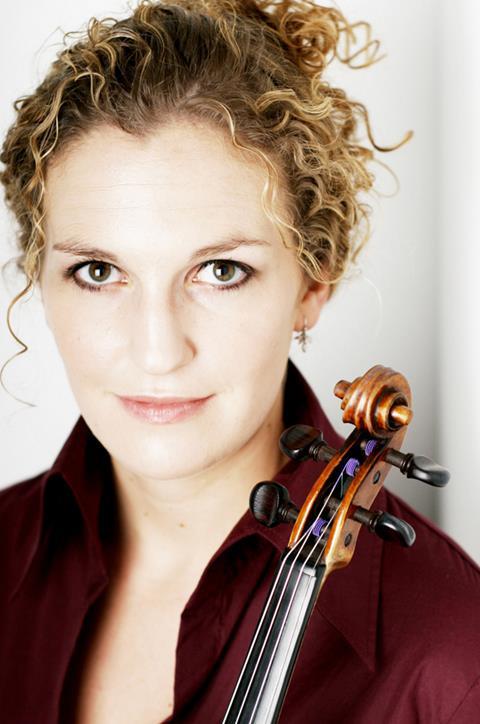Ruth Rogers, Victoria Sayles, Rose Redgrave and Katherine Jenkinson are playing string quartets to Burmese refugees on the Thai-Burma border. This is their second blog entry for The Strad website, written by Ruth Rogers

Today has been another extraordinary and remarkable day for us. We set off this morning for the Mae La refugee camp on the border, stopping off to buy 20 industrial-sized tins of biscuits for the thousand or so children we were going to play for! We were all a little anxious about how we would feel when confronted by a refugee camp - particularly one that has been there for 20 years and which provides a supposedly 'temporary' home for around 50,000 people. This was a potentially depressing place to visit. The reality was that it was full of hope and promise.
When we arrived, we were taken to visit the care-home for handicapped people in the camp. These are all people who have suffered horribly in landmine explosions and have lost their eyesight, or some of their limbs, or in many cases both. They greeted us warmly and we played to them, desperately trying to bring a little light into their dark hut. They sang for us, accompanied by a guitar and we all struggled not to cry. What has happened to these people seems so painfully unnecessary.
We then played to an enormous group of children of all ages from a school in the camp - there were around a thousand kids and it was a fairly chaotic event! But just like yesterday they really listened when we played and music seemed to grab their attention and hold it in an astounding way. They were quite shy to come forward to volunteer for the games but this may just be because there were so many people watching. Even as a performer I felt rather overwhelmed by the numbers, so frankly I don't blame them!
Later we were led to a theological college in the camp and as we arrived we witnessed the most fantastic rendition by the students of the 'Hallelujah' chorus of Handel's Messiah. It was heartfelt, full-blooded and musical and we all commented on how their chorus had such a fine core of sound. It was absolutely unaccompanied and I only realised this hours later - I didn't notice that anything was missing at the time. (Anyway, as a violinist I find Handel's Messiah far too exhausting to perform so would encourage all future performances to be 'a cappella'!) We played a small recital to the students, including the slow movement of Dvorak's 'American' Quartet and a movement of Haydn, as well as some 'lollipops'. When we played Faure's Pavane I asked one young man how it made him feel. He described being on a long road on his own and then finding someone to share the journey with; it made him feel peaceful and hopeful.
We were presented with four matching pieces of Karen traditional costume and we all put them on straight away, delighted at the warmth and welcome of these people. We said goodbye and I promised myself that I would come back to see these people again. They are inspiring (I wish that I could convey how rewarding this is, but words seem so hollow when I try to express what I would like to say).
This evening we gave another short concert for leaders of the Karen National Union and for children at a migrant care-home. Everywhere we go, music is a universal language that everyone can understand without the need for translation, a language that reaches out to people who cannot otherwise be reached. The people we have met are full of hope and perseverance. The world would truly be a better place if everyone could meet these refugees.
Ruth Rogers




















































No comments yet